Find Help
More Items From Ergsy search
-
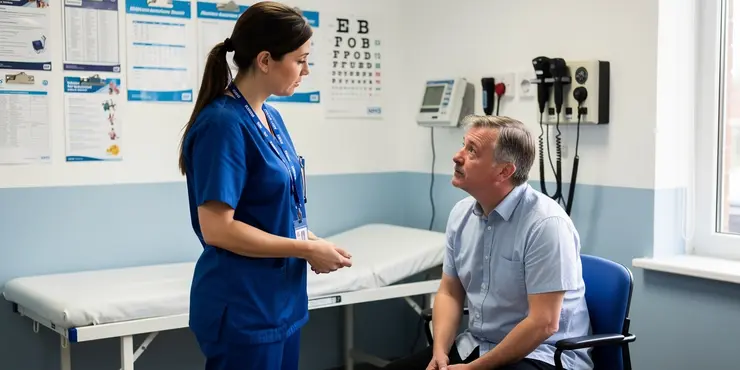
What is motor neurone disease?
Relevance: 100%
-
Is motor neurone disease hereditary?
Relevance: 99%
-
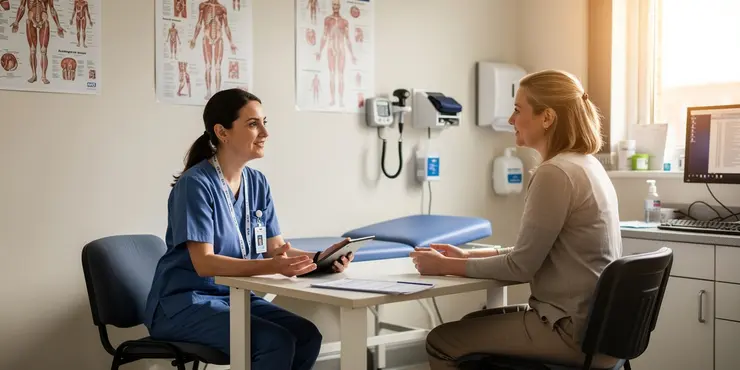
What causes motor neurone disease?
Relevance: 98%
-
Are there different types of motor neurone disease?
Relevance: 98%
-
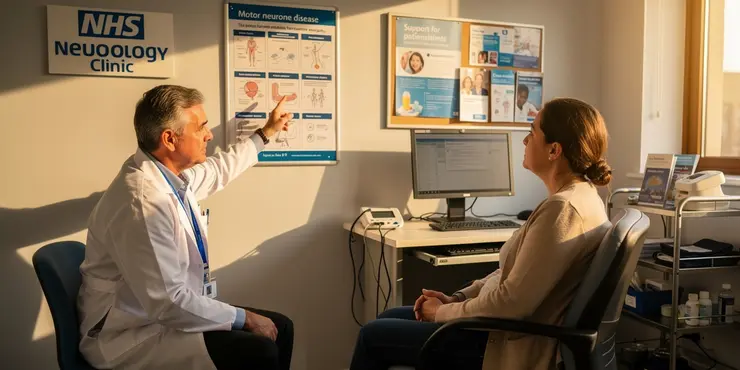
Is there a cure for motor neurone disease?
Relevance: 95%
-
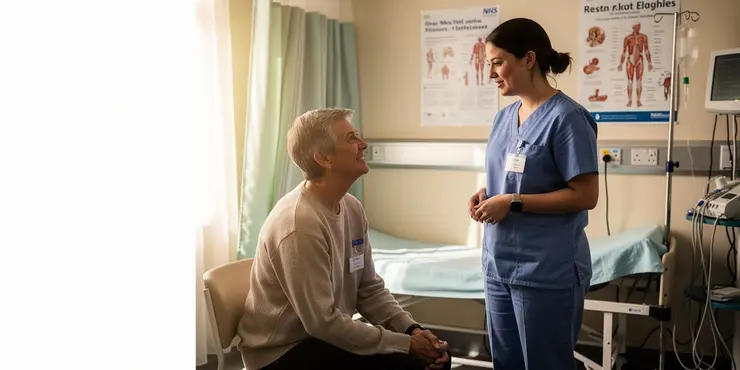
What are the primary symptoms of motor neurone disease?
Relevance: 91%
-
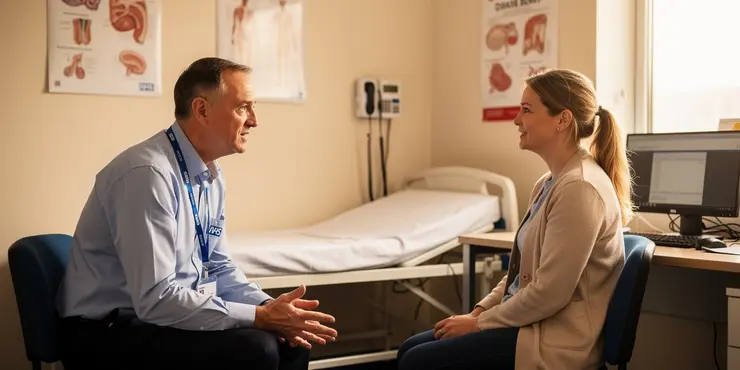
How is motor neurone disease diagnosed?
Relevance: 88%
-
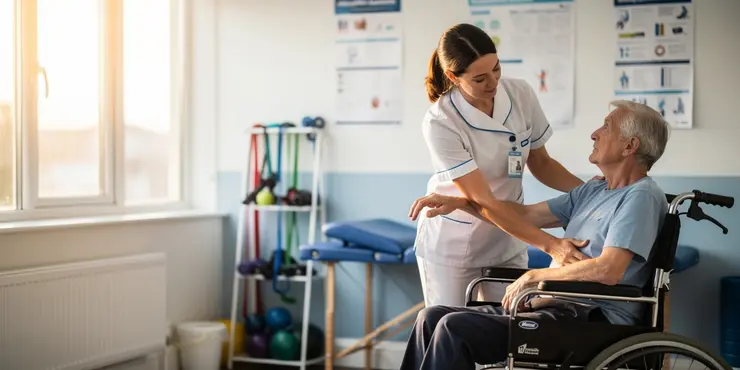
What treatments are available for motor neurone disease?
Relevance: 87%
-
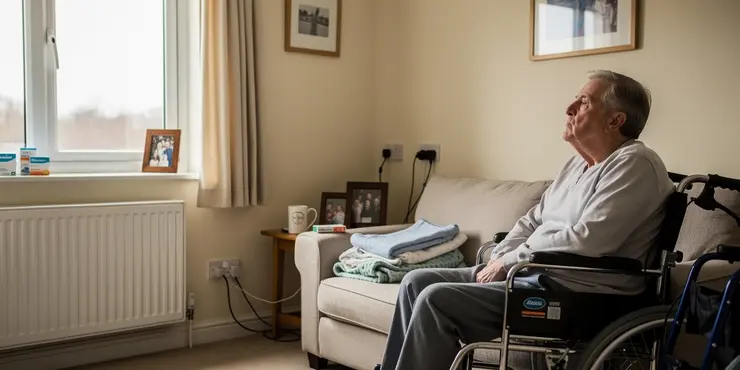
How is breathing affected by motor neurone disease?
Relevance: 87%
-
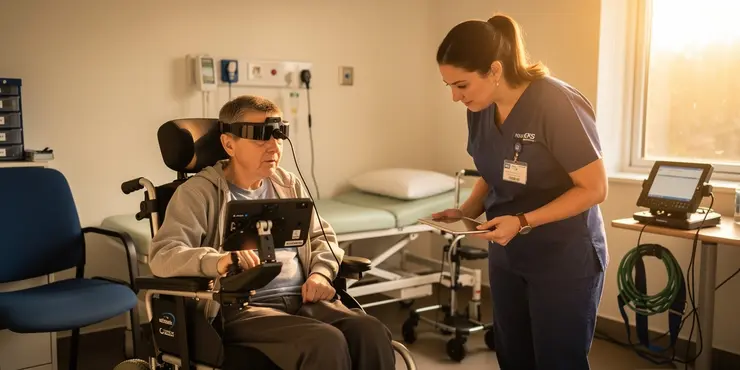
What assistive devices can help people with motor neurone disease?
Relevance: 86%
-
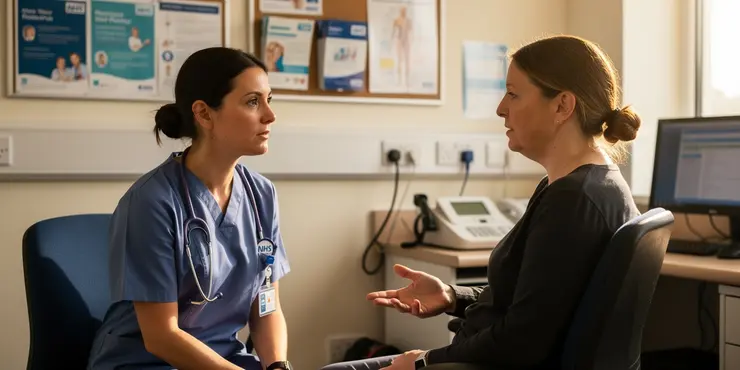
What role do genetics play in motor neurone disease?
Relevance: 85%
-
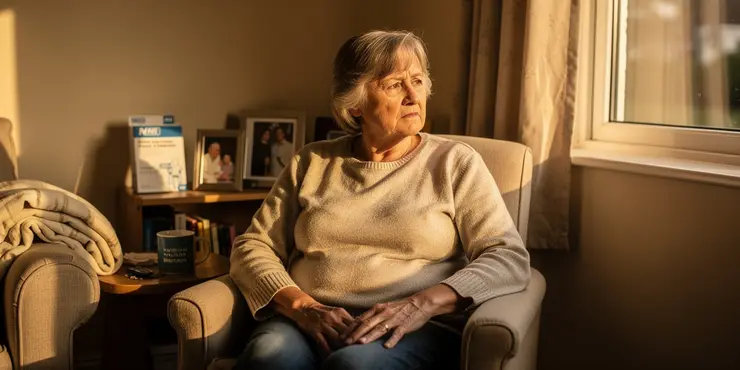
Motor neurone disease Julie's story | NHS
Relevance: 83%
-
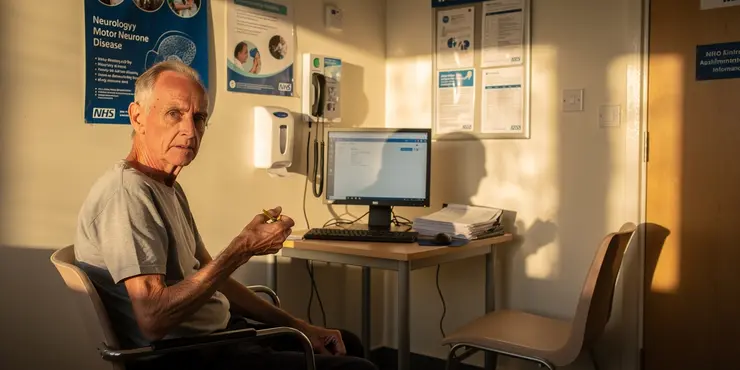
How does motor neurone disease affect the body?
Relevance: 81%
-
How does motor neurone disease affect speech?
Relevance: 81%
-
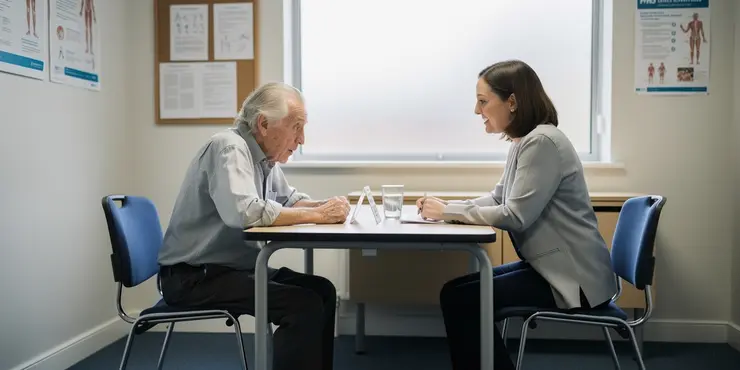
How does motor neurone disease impact swallowing?
Relevance: 79%
-
Can lifestyle changes impact motor neurone disease progression?
Relevance: 77%
-
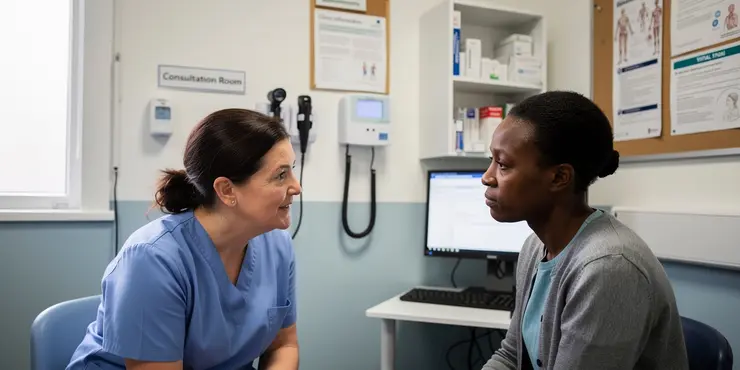
What is the life expectancy after a motor neurone disease diagnosis?
Relevance: 76%
-
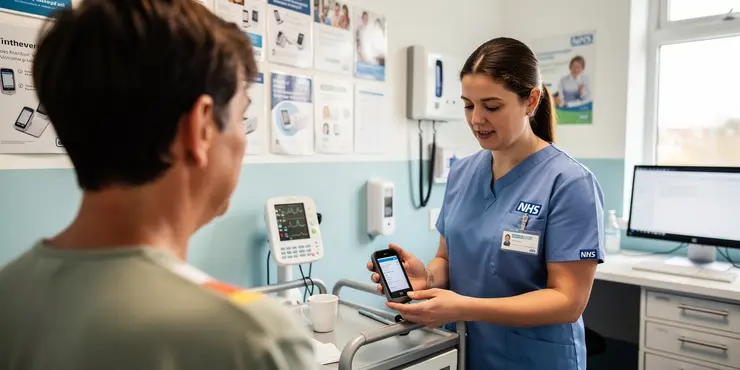
Voice banking service helps people live with motor neurone disease
Relevance: 76%
-

How can caregivers support someone with motor neurone disease?
Relevance: 71%
-
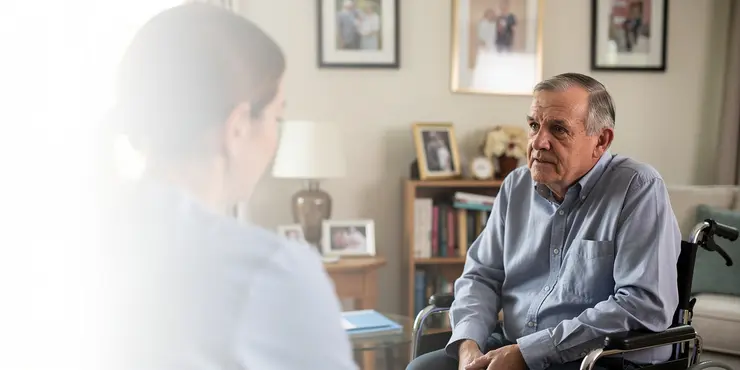
Are there support groups for individuals with motor neurone disease?
Relevance: 66%
-
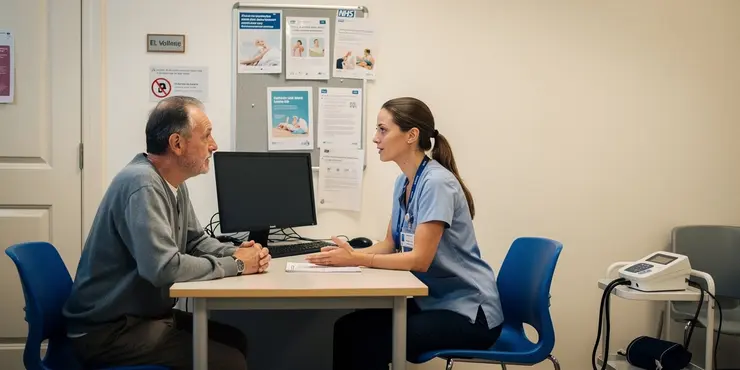
Who is at risk for motor neurone disease?
Relevance: 65%
-
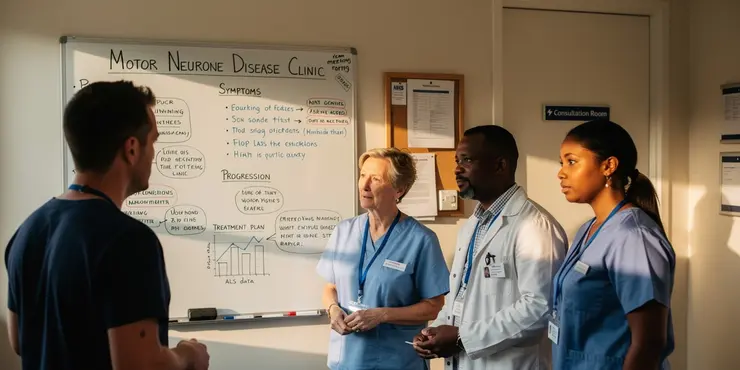
What research is being done on motor neurone disease?
Relevance: 64%
-
How does Huntington's disease affect movement?
Relevance: 40%
-
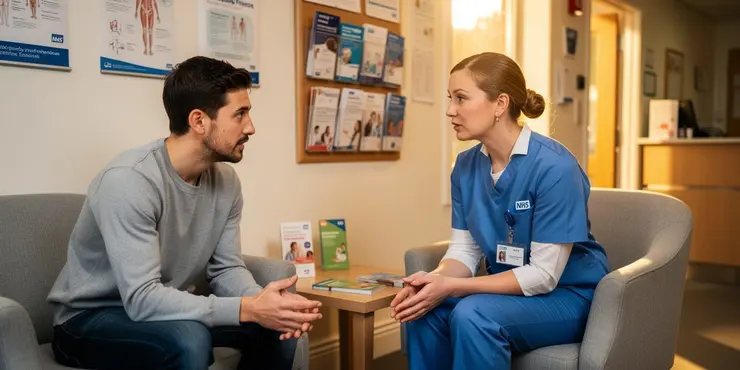
What is MND?
Relevance: 40%
-
What is Parkinson's disease?
Relevance: 36%
-
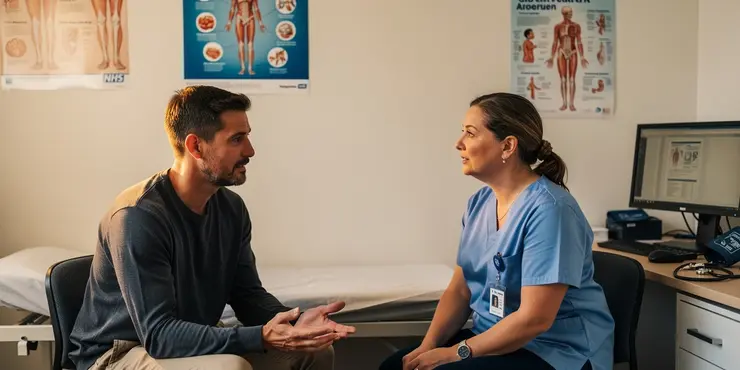
What causes Huntington's disease?
Relevance: 35%
-
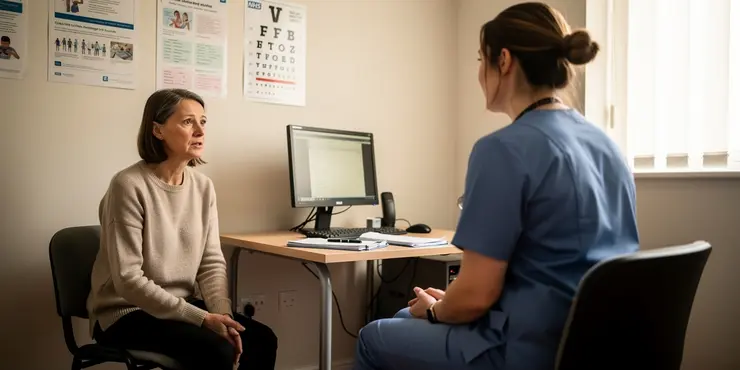
What are the symptoms of Huntington's disease?
Relevance: 32%
-

Is Huntington's disease fatal?
Relevance: 32%
-
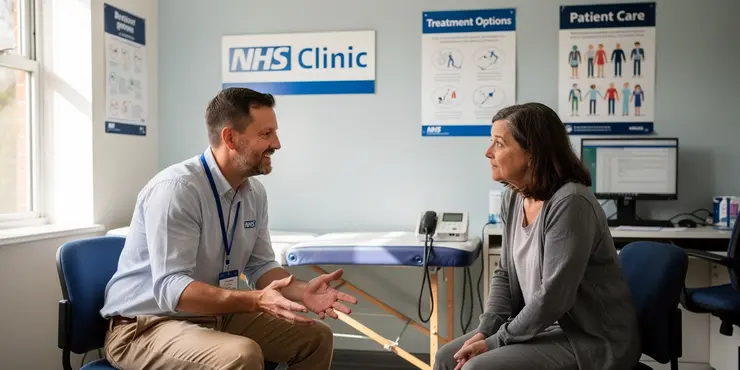
What research is being done on Huntington's disease?
Relevance: 32%
-
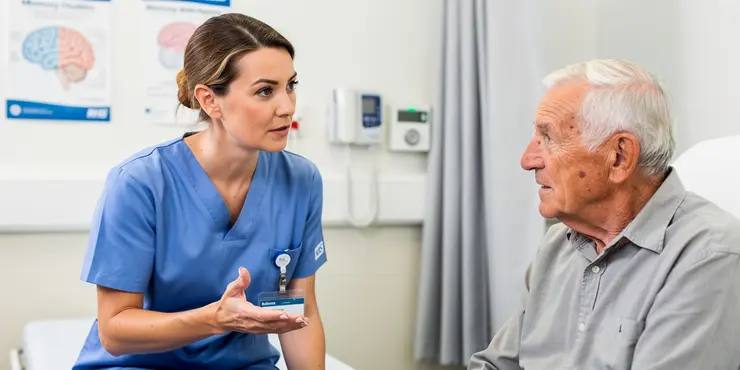
What causes Alzheimer's disease?
Relevance: 30%
-
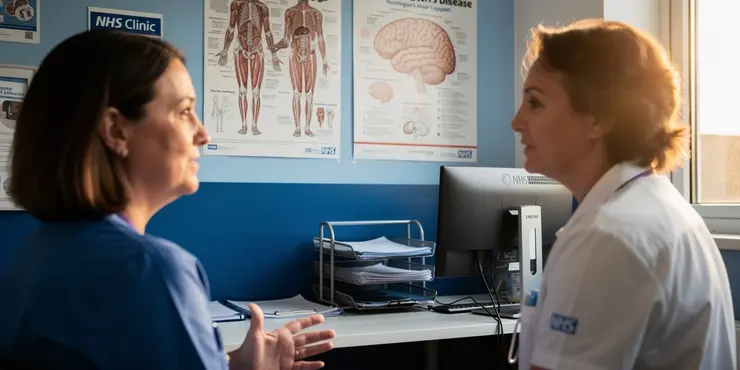
What is Huntington's disease?
Relevance: 27%
-

Can Huntington's disease be prevented?
Relevance: 27%
-
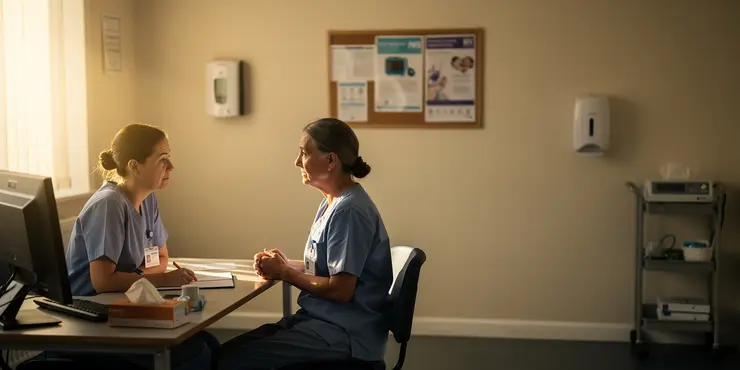
Can Huntington's disease be cured?
Relevance: 26%
-
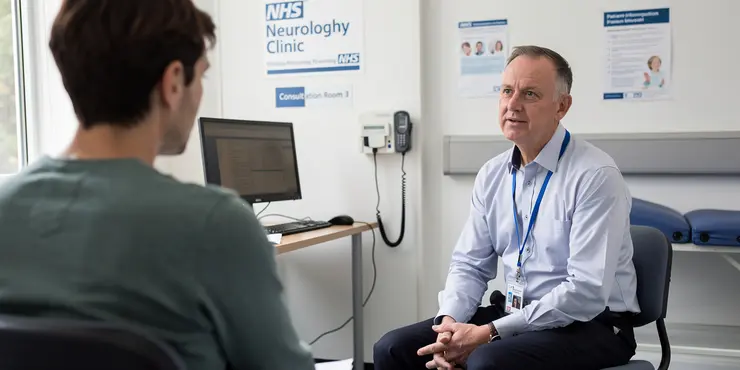
What kinds of specialists are involved in treating Huntington's disease?
Relevance: 25%
-
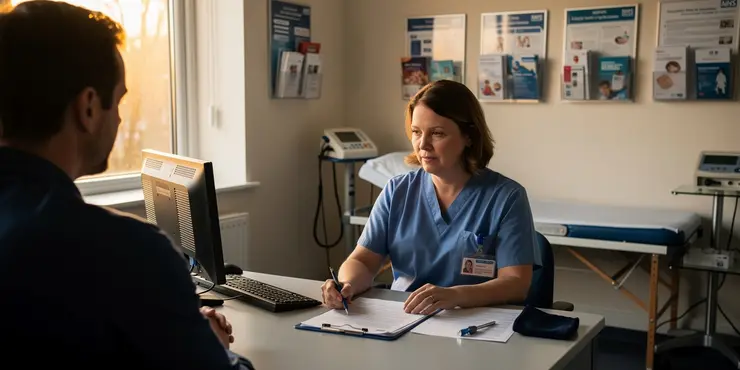
How is Huntington's disease diagnosed?
Relevance: 25%
-
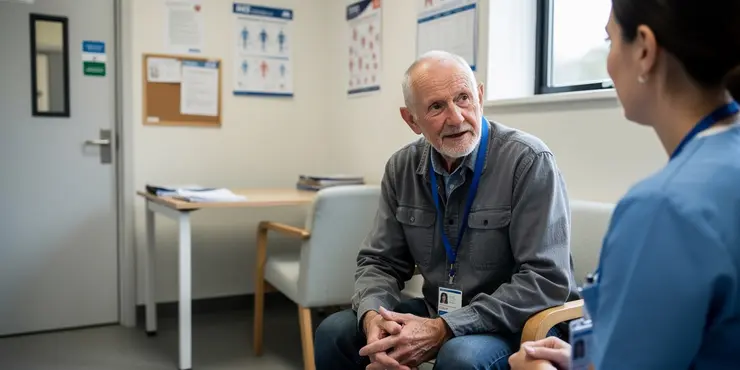
Parkinson’s Disease and NHS RightCare: Long Term Condition Scenario
Relevance: 25%
-
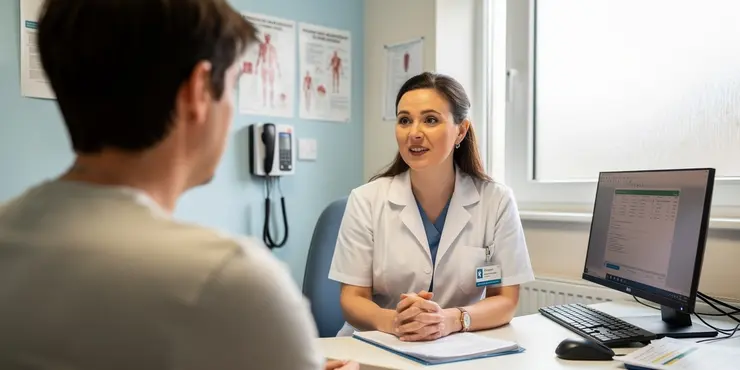
How does Huntington's disease affect emotions?
Relevance: 24%
-
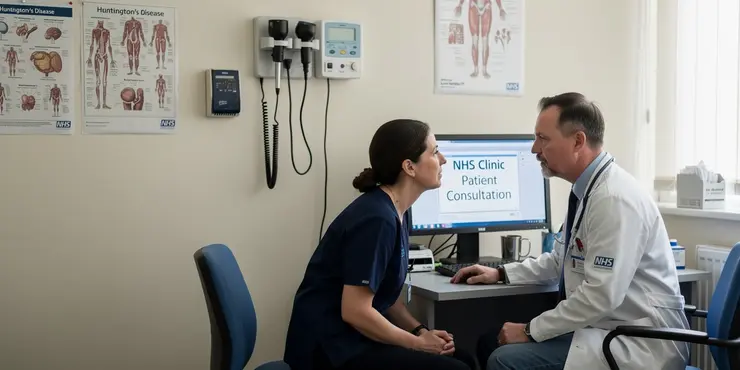
How does Huntington's disease affect cognition?
Relevance: 24%
-
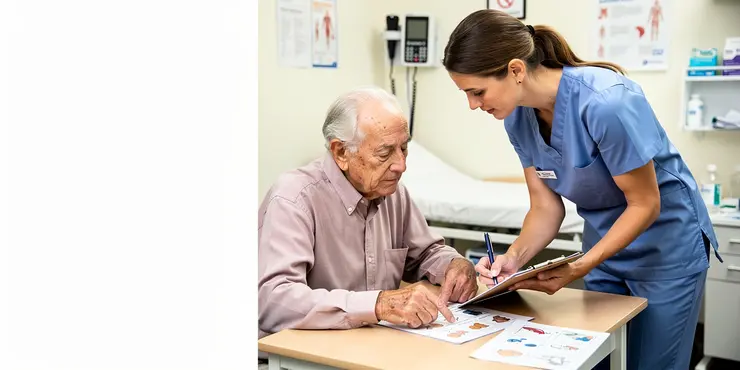
What are the stages of Alzheimer's disease?
Relevance: 23%
-
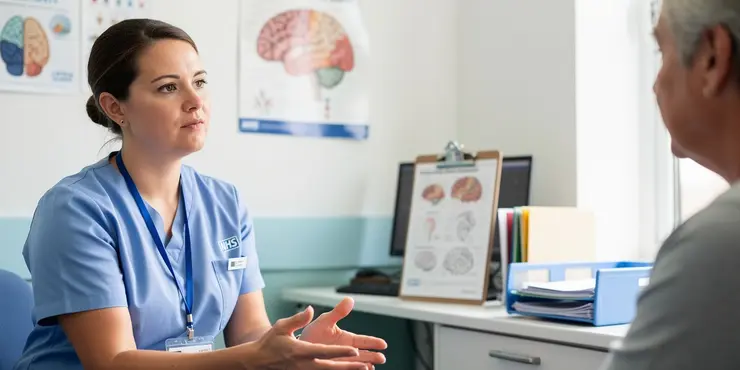
An introduction to frontotemporal dementia (FTD) (part 1/3)
Relevance: 23%
Motor Neurone Disease: Julie's Story
Introduction to Motor Neurone Disease (MND)
Motor Neurone Disease (MND) is a progressive neurodegenerative condition that affects nerve cells, or motor neurons, in the brain and spinal cord. In individuals with MND, these neurons gradually lose function, leading to muscle weakness, stiffness, and eventual paralysis. While the exact cause of MND is still unknown, it is commonly diagnosed in the UK, and it can have a profound impact on patients and their families.Julie's Diagnosis Journey
Julie, a 55-year-old from Manchester, first noticed subtle signs when she began to experience weakness in her hands and occasional muscle cramps. Initially dismissing these symptoms as signs of aging, Julie's condition gradually worsened. It wasn't until a neurologist conducted a series of diagnostic tests, including electromyography (EMG) and MRI scans, that she was diagnosed with MND.The Impact on Julie's Life
For Julie, the diagnosis was life-altering. MND affected her ability to perform everyday tasks, such as buttoning her shirt and lifting groceries. As the condition progressed, she required mobility aids and eventually a wheelchair for support. Despite these challenges, Julie remained determined to maintain her independence and continued to engage in activities she loved, such as painting and gardening, with the help of assistive devices.Support from the NHS
Throughout her journey, Julie received comprehensive care and support from the NHS. She was provided with a multidisciplinary team that included neurologists, physiotherapists, occupational therapists, and speech and language therapists. This coordinated approach ensured that Julie's physical, emotional, and social needs were met. The NHS also offered access to support groups, where Julie connected with others facing similar challenges.Julie's Advocacy and Awareness Efforts
Despite the difficulties she faced, Julie became a passionate advocate for MND awareness. She participated in fundraising events and worked to increase public understanding of the disease. Julie's story highlights the importance of early diagnosis and the vital support systems that the NHS provides to individuals with MND.Conclusion
Julie’s story is a testament to resilience and the critical role of the NHS in supporting individuals with Motor Neurone Disease. By sharing her experiences, Julie not only raises awareness of MND but also underscores the importance of comprehensive care and community support in managing this challenging condition. Her journey inspires others to remain hopeful and proactive in the face of adversity.Motor Neurone Disease: Julie's Story
What is Motor Neurone Disease (MND)?
Motor Neurone Disease, or MND, is a disease that slowly damages nerve cells in the brain and spine. These nerve cells help our muscles work. When they stop working, it can make muscles weak, stiff, and can lead to problems moving. We don’t know what causes MND, but it affects many people in the UK and their families.How Julie Found Out She Had MND
Julie is 55 years old and lives in Manchester. She first noticed something was wrong when her hands felt weak and cramped. At first, she thought it was just because she was getting older. But when things got worse, a special doctor called a neurologist ran some tests. They did tests called EMG and MRI scans and found out she had MND.How MND Affected Julie's Life
Finding out she had MND changed Julie's life. Simple things, like buttoning her shirt or carrying groceries, became hard to do. As it got worse, she needed to use a wheelchair. But Julie was determined to stay independent. She kept doing things she loved, like painting and gardening, using special tools to help.Support Julie Got from the NHS
Julie got a lot of help from the NHS. She had a team of people including doctors, physiotherapists, and therapists for speech and daily activities. They worked together to make sure Julie got the help she needed. She also joined support groups to talk to other people with MND.Julie’s Work to Help Others Understand MND
Even with her own challenges, Julie spoke out to help people understand MND. She joined events to raise money and talked to the public about the disease. Julie’s story shows how important it is to find out about MND early and to have good support systems, like the NHS.Conclusion
Julie’s experience shows her strength and how the NHS helps people with MND. By talking about her life, she helps people learn about MND and the care needed. Her journey gives hope and encourages others to keep going, even when things are tough.Frequently Asked Questions
What is motor neurone disease (MND)?
Motor neurone disease (MND) is a rare condition that progressively damages parts of the nervous system. This leads to muscle weakness and eventually significant disability.
What are the early signs of MND?
Early symptoms of motor neurone disease can include weakness in the ankles or legs, slurred speech, and a weak grip.
How did Julie discover she had MND?
Julie noticed unusual muscle twitches and weakness in her hand, which eventually led her to seek medical advice and receive an MND diagnosis.
How does MND progress?
MND typically progresses through increasing muscle weakness, leading to difficulties with mobility, speech, swallowing, and breathing.
Is there a cure for MND?
Unfortunately, there is currently no cure for MND, but treatments and therapies can help manage symptoms and improve quality of life.
What treatments are available for MND?
Treatments for MND include medications to manage symptoms, physical therapy, speech and language therapy, and respiratory support.
Can MND affect anyone?
MND can affect adults at any age, but it is more common in people over the age of 50.
What support is available for people with MND?
People with MND can access support from the NHS, MND Association, and other resources for medical care, emotional support, and practical advice.
How does MND affect daily life?
MND can make everyday tasks increasingly difficult, and many people with MND require adaptations at home and in their daily routines to maintain independence.
What role do carers play in managing MND?
Carers play a crucial role in providing physical and emotional support to individuals with MND, often assisting with daily activities and medical needs.
How did Julie cope with her MND diagnosis?
Julie found it challenging to cope with her MND diagnosis, but she focused on making the most of every day and sought support from family, friends, and support groups.
Are there any lifestyle changes that can help manage MND?
Healthy eating, staying active as much as possible, and maintaining social connections can help manage MND symptoms and improve overall well-being.
What is the role of a neurologist in MND care?
A neurologist specializes in conditions affecting the nervous system and will typically oversee the diagnosis and management of MND.
How can friends and family support someone with MND?
Friends and family can offer emotional support, help with daily tasks, and encourage the person with MND to stay engaged in social activities.
Where can I find more information about MND?
More information about MND can be found on the NHS website, the MND Association, and other reputable health information sources.
What is motor neurone disease (MND)?
Motor neurone disease (MND) is an illness. It affects the nerves in the brain and spine. These nerves help our muscles move.
MND makes it hard for the muscles to work. Over time, it can make things like walking, talking, and even breathing difficult.
If you want to understand more, you can:
- Ask a doctor or nurse for help.
- Look at pictures or videos that explain MND.
- Use apps that read out loud.
Motor neurone disease (MND) is a rare illness. It slowly hurts the nervous system. This makes muscles weak and can cause big problems moving.
What are the early signs of MND?
MND means Motor Neurone Disease. It is a sickness that hurts the nerves in the body.
Here are some early signs of MND:
- Feeling weak in your hands or legs
- Having trouble speaking clearly
- Finding it hard to swallow
- Feeling very tired
- Muscles twitching or shaking
If you notice these signs, tell a doctor. They can help you.
Reading tools or someone you trust can help you understand more and feel better.
If someone has motor neurone disease, they might notice feeling weak in their ankles or legs. They might also have trouble speaking clearly, or their grip might not be strong.
How did Julie find out she had MND?
Julie found out she had MND by visiting a doctor. The doctor did some tests to check her health. They helped Julie know what was happening in her body.
If you need help understanding this, you can ask someone to read it with you. You can also use a computer or phone to read it out loud.
Julie felt her hand twitching and getting weak. This was strange for her. So, she went to the doctor. The doctor said Julie has MND.
How does MND progress?
MND stands for Motor Neurone Disease. It is a sickness that affects the nerves in your body. These nerves help your muscles work.
Over time, MND makes it hard for your muscles to move. People with MND find it harder to walk, talk, and even breathe.
MND can change differently for everyone. Some people get worse slowly. Some people get worse faster.
If you want to know more about MND, ask a doctor or someone who cares for people with MND.
Using pictures or simple videos can help you understand MND better.
MND makes muscles weak over time. This can make it hard to move, talk, swallow, and breathe.
Can MND be fixed?
Right now, there is no way to fix MND. But, there are treatments and therapies that can help make the symptoms better and help people feel better.
You can try some tools and tips to feel better:
- Doctors can give you medicines to help with pain or muscle cramps.
- Therapists can show you exercises to keep your body strong.
- Speech therapists can help if talking is hard.
- Support groups can help you share feelings and ideas with others.
What are the treatments for MND?
MND stands for Motor Neurone Disease. This is a disease that affects nerves in the body.
Here are some ways to help people with MND:
- Medicines: Doctors can give special medicines to help with symptoms.
- Therapy: Talking to therapists can help with movement and speech.
- Equipment: Using special tools like wheelchairs can help with moving around.
It is important to work with doctors and therapists to find the best treatment. They will know how to help.
If you need help to understand or read, you can ask someone to read it with you or use audio tools to listen.
There are ways to help if you have MND. You can take medicine to help with how you feel. There are special exercises called physical therapy that can help your body. Talking with a speech and language therapist can make talking easier. There is also breathing support to help you breathe better.
Can MND happen to anyone?
MND stands for Motor Neurone Disease. It is an illness that makes the muscles weak.
Yes, MND can happen to anyone. But it is more common in older people.
If you want help to understand this, you can:
- Ask someone to read it with you.
- Use pictures or videos about MND.
MND can happen to grown-ups of any age, but it mostly happens to people older than 50.
What help can people with MND get?
There are many ways to help people with MND (Motor Neurone Disease). Here are some:
- Doctors and Nurses: They can help with medical care.
- Family and Friends: They can give support and care every day.
- Therapists: They can help with speaking, moving, and doing things.
- Counselors: They can help with feelings and worries.
- Support Groups: Meeting others with MND can help you feel less alone.
Using special tools can also help, like wheelchairs or computers that help you talk.
People with MND can get help from the NHS and the MND Association. They can give medical care, emotional support, and practical advice.
How does MND affect daily life?
MND is a short way to say Motor Neurone Disease.
MND can make daily life hard. It can make moving difficult. People might need help to walk, eat, or talk.
Tools like wheelchairs or special spoons can help. People also use computers to talk if speaking is hard.
Family, friends, and carers can give support. They can help with daily tasks and make life easier.
MND can make it hard to do everyday things. People with MND might need to change things at home and in their routines to stay independent.
What do carers do to help someone with MND?
Carers help people who have MND (Motor Neurone Disease). They do important things like:
- Helping with daily tasks like getting dressed and eating.
- Giving medicine and taking the person to doctor visits.
- Talking and listening to help the person feel better.
- Making sure the person is safe and comfortable.
Carers can use tools like picture boards or apps to help talk and understand. It is important for carers to have breaks too, so they can stay strong.
Carers are very important. They help people with MND (which is a type of illness) to feel better. Carers help with things like getting dressed or going to the doctor.
How did Julie handle finding out she has MND?
MND is a sickness that makes the muscles weak. It can be scary to hear you have it. Julie did certain things to feel better and manage her feelings.
- Ask for Help: Julie talked to her family and doctors. They helped her understand MND.
- Stay Positive: Julie tried to think about happy things. This made her feel a bit better.
- Learn About MND: Julie and her family read books and looked at websites about MND.
- Join a Group: Julie met other people with MND. They talked and shared stories.
If you know someone with MND, you can help by listening to them and being a friend.
Julie found it hard when she learned she had MND. She tried to enjoy each day and got help from family, friends, and support groups.
Can changing how you live help with MND?
Some changes in your daily life might help if you have MND (Motor Neurone Disease). Here are some simple ideas:
- Stay active: Gentle exercise, like walking or yoga, can help keep your muscles strong. You should talk to a doctor before trying new exercises.
- Eat well: Eating healthy foods gives you energy. Try to eat fruits, vegetables, and proteins like chicken or fish.
- Rest: Getting enough sleep helps your body. Try to have a regular bedtime and relax before sleeping.
- Talk with others: Share how you feel with family or friends. This can make you feel better and they can help you too.
Supportive tools like special utensils for eating or devices for walking can also help. Ask your doctor about these tools.
Eating healthy food, moving around, and spending time with friends can help people feel better even if they have trouble moving their muscles.
What does a neurologist do for someone with MND?
A neurologist is a doctor who helps people with brain and nerve problems. They know a lot about motor neurone disease (MND). This is a disease that makes it hard to move.
The neurologist helps by:
- Checking how the brain and nerves are working.
- Helping to find out if someone has MND.
- Giving advice on how to feel better and manage symptoms.
- Working with other doctors and nurses to give the best care.
Tools and tips:
- Use pictures and videos to learn more about MND.
- Ask questions if something is hard to understand.
- Bring someone with you to appointments for support.
A neurologist is a doctor who helps people with problems in their brain and nerves. They are the ones who can find out if someone has MND and take care of them.
How can friends and family help someone with MND?
Do you know someone with Motor Neurone Disease (MND)? Here are ways you can help:
- Talk and Listen: Spend time with them. Listen when they want to talk. They will feel better knowing you care.
- Help with Daily Tasks: Offer help around the house, like cooking or cleaning. Little things can be a big help.
- Be Patient: It might take them longer to do things. Give them time and don't rush them.
- Learn More: Read about MND so you understand what they are going through.
- Stay Positive: Encourage them and share happy moments together.
If you need help understanding or remembering, you can:
- Ask someone to explain it to you.
- Write notes or draw pictures to help you remember.
Friends and family can help in many ways. They can offer love and care, help with things around the house, and encourage the person with MND to join in activities with others.
Where can I get more info about MND?
MND stands for Motor Neurone Disease. If you want to learn more, here are some ideas:
- Visit your local library. They have books and computers you can use.
- Check websites about health and MND. Maybe ask someone you trust to help you find them.
- Talk to your doctor or nurse. They can give you information.
- Ask someone who knows a lot about MND.
Use a highlighter to pick out important bits in texts.
Ask someone you trust to read with you.
You can learn more about MND (Motor Neurone Disease) by visiting these websites: NHS, MND Association, and other trusted health websites.
Useful Links
This website offers general information and is not a substitute for professional advice.
Always seek guidance from qualified professionals.
If you have any medical concerns or need urgent help, contact a healthcare professional or emergency services immediately.
Some of this content was generated with AI assistance. We’ve done our best to keep it accurate, helpful, and human-friendly.
- Ergsy carfully checks the information in the videos we provide here.
- Videos shown by Youtube after a video has completed, have NOT been reviewed by ERGSY.
- To view, click the arrow in centre of video.
- Most of the videos you find here will have subtitles and/or closed captions available.
- You may need to turn these on, and choose your preferred language.
- Go to the video you'd like to watch.
- If closed captions (CC) are available, settings will be visible on the bottom right of the video player.
- To turn on Captions, click settings .
- To turn off Captions, click settings again.
More Items From Ergsy search
-

What is motor neurone disease?
Relevance: 100%
-
Is motor neurone disease hereditary?
Relevance: 99%
-

What causes motor neurone disease?
Relevance: 98%
-
Are there different types of motor neurone disease?
Relevance: 98%
-

Is there a cure for motor neurone disease?
Relevance: 95%
-

What are the primary symptoms of motor neurone disease?
Relevance: 91%
-

How is motor neurone disease diagnosed?
Relevance: 88%
-

What treatments are available for motor neurone disease?
Relevance: 87%
-

How is breathing affected by motor neurone disease?
Relevance: 87%
-

What assistive devices can help people with motor neurone disease?
Relevance: 86%
-

What role do genetics play in motor neurone disease?
Relevance: 85%
-

Motor neurone disease Julie's story | NHS
Relevance: 83%
-

How does motor neurone disease affect the body?
Relevance: 81%
-
How does motor neurone disease affect speech?
Relevance: 81%
-

How does motor neurone disease impact swallowing?
Relevance: 79%
-
Can lifestyle changes impact motor neurone disease progression?
Relevance: 77%
-

What is the life expectancy after a motor neurone disease diagnosis?
Relevance: 76%
-

Voice banking service helps people live with motor neurone disease
Relevance: 76%
-

How can caregivers support someone with motor neurone disease?
Relevance: 71%
-

Are there support groups for individuals with motor neurone disease?
Relevance: 66%
-

Who is at risk for motor neurone disease?
Relevance: 65%
-

What research is being done on motor neurone disease?
Relevance: 64%
-
How does Huntington's disease affect movement?
Relevance: 40%
-

What is MND?
Relevance: 40%
-
What is Parkinson's disease?
Relevance: 36%
-

What causes Huntington's disease?
Relevance: 35%
-

What are the symptoms of Huntington's disease?
Relevance: 32%
-

Is Huntington's disease fatal?
Relevance: 32%
-

What research is being done on Huntington's disease?
Relevance: 32%
-

What causes Alzheimer's disease?
Relevance: 30%
-

What is Huntington's disease?
Relevance: 27%
-

Can Huntington's disease be prevented?
Relevance: 27%
-

Can Huntington's disease be cured?
Relevance: 26%
-

What kinds of specialists are involved in treating Huntington's disease?
Relevance: 25%
-

How is Huntington's disease diagnosed?
Relevance: 25%
-

Parkinson’s Disease and NHS RightCare: Long Term Condition Scenario
Relevance: 25%
-

How does Huntington's disease affect emotions?
Relevance: 24%
-

How does Huntington's disease affect cognition?
Relevance: 24%
-

What are the stages of Alzheimer's disease?
Relevance: 23%
-

An introduction to frontotemporal dementia (FTD) (part 1/3)
Relevance: 23%


